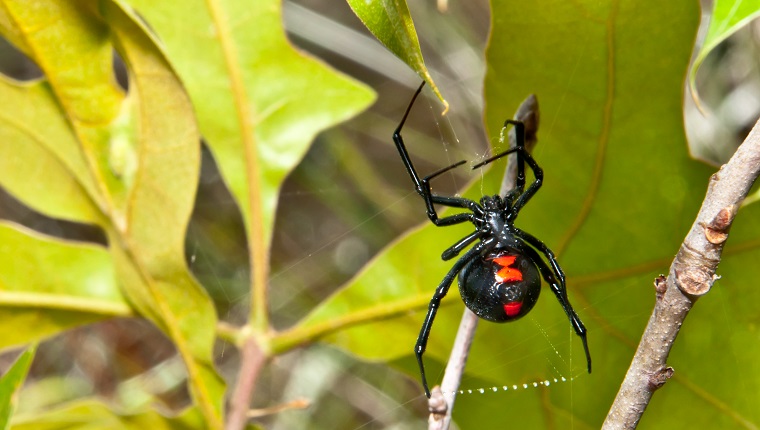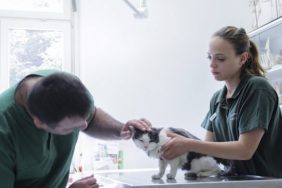Black widow spider bite poisoning in cats occurs when a cat is bitten by a black widow spider. After a cat is bitten, the spider’s neurotoxin enters the cat’s body and can cause a range of symptoms including paralysis and muscle spasms.
In some cases, the poisoning can prove to be fatal, so it’s always vital to speak to a veterinarian straight away if you notice that a black widow spider has bitten your kitty.
While black widow spider bites can affect all breeds of cats, very young and very old cats might suffer more extreme reactions due to their immune systems often being weaker or less developed.
As a note, female black widow spiders carry poisonous venom, but male black widow spiders are non-toxic in general.
If you see signs that your cat might be at risk of poisoning from a black widow spider, then you must consult your veterinarian for a proper diagnosis and course of treatment. Here’s what you should know about the symptoms, causes, and treatments of black widow spider bite poisoning in cats.
Symptoms Of Black Widow Spider Bite Poisoning In Cats
Black widow spider bite poisoning in cats can produce a range of symptoms. Some of the most common symptoms include:
- Paralysis
- Starting to tremor
- Salivating a lot
- Increased heart rate
- Bad muscle pains (especially around the abdomen) accompanied by howling
- Issues with breathing
- Increased blood pressure
- Diarrhea
- Vomiting
In severe cases, the poisoning can prove to be fatal to cats if they do not receive immediate medical care.
Causes Of Black Widow Spider Bite Poisoning In Cats
![Legs extended and red hourglass showing, a female black widow spider waits, upside down in a web. A thin tree branch provides some anchor points for the web. [url=http://www.istockphoto.com/file_search.php?action=file&lightboxID=7592829] [img]http://www.kostich.com/spiders_banner.jpg[/img][/url]](https://cattime.com/wp-content/uploads/sites/14/2021/11/black-widow-spider-bite-poisoning-cats-2.jpg)
You can identify black widow spiders by their size and markings. Adults are around two to two-and-a-half centimeters long and feature a red or orange marking on their body that resembles an hourglass.
In general, very young and senior cats have a higher likelihood of experiencing an extreme adverse reaction to being bitten by a black widow spider. This is due to the chance their their immune systems are not as strong.
Additionally, cats suffering from high blood pressure can have a higher risk of suffering from negative reactions after being bitten by a black widow spider.
Veterinary Treatments
If you notice that your cat has been bitten by a black widow spider, then you must consult an emergency veterinarian straight away. The vet will likely order a full physical examination and blood tests.
If your kitty experiences diarrhea or vomiting, your vet may find it helpful for you to bring a sample along for analysis.
Treatment can often involve a period of time in hospital. This is so that the vet can properly administer supportive care, including oxygen therapy, intravenous fluids, and appropriate medication.
In many cases, vets will administer anti-venom medication.
Has a black widow spider ever bitten your cat? What sort of symptoms did you notice? Tell us all about it in the comments below.









